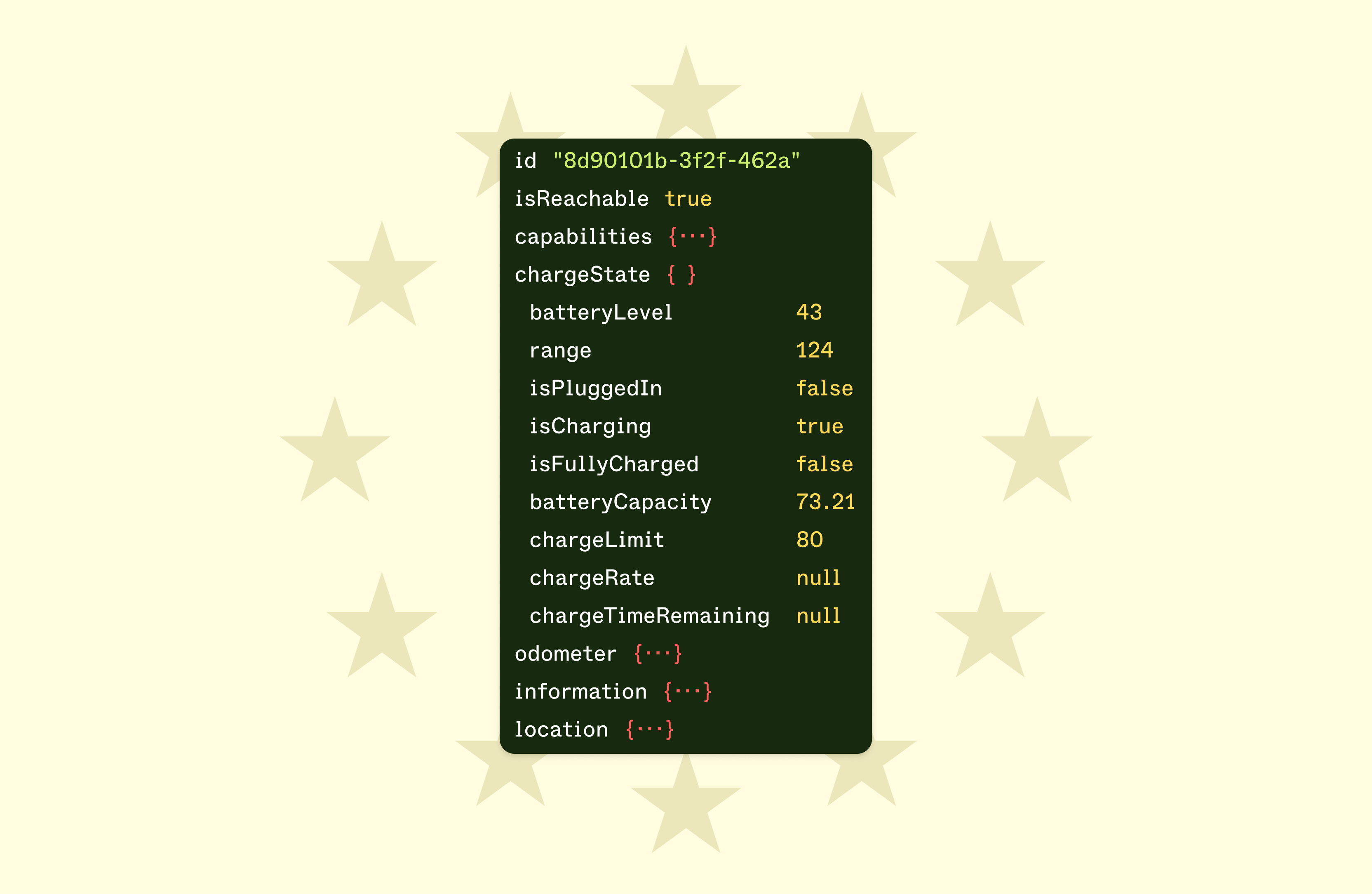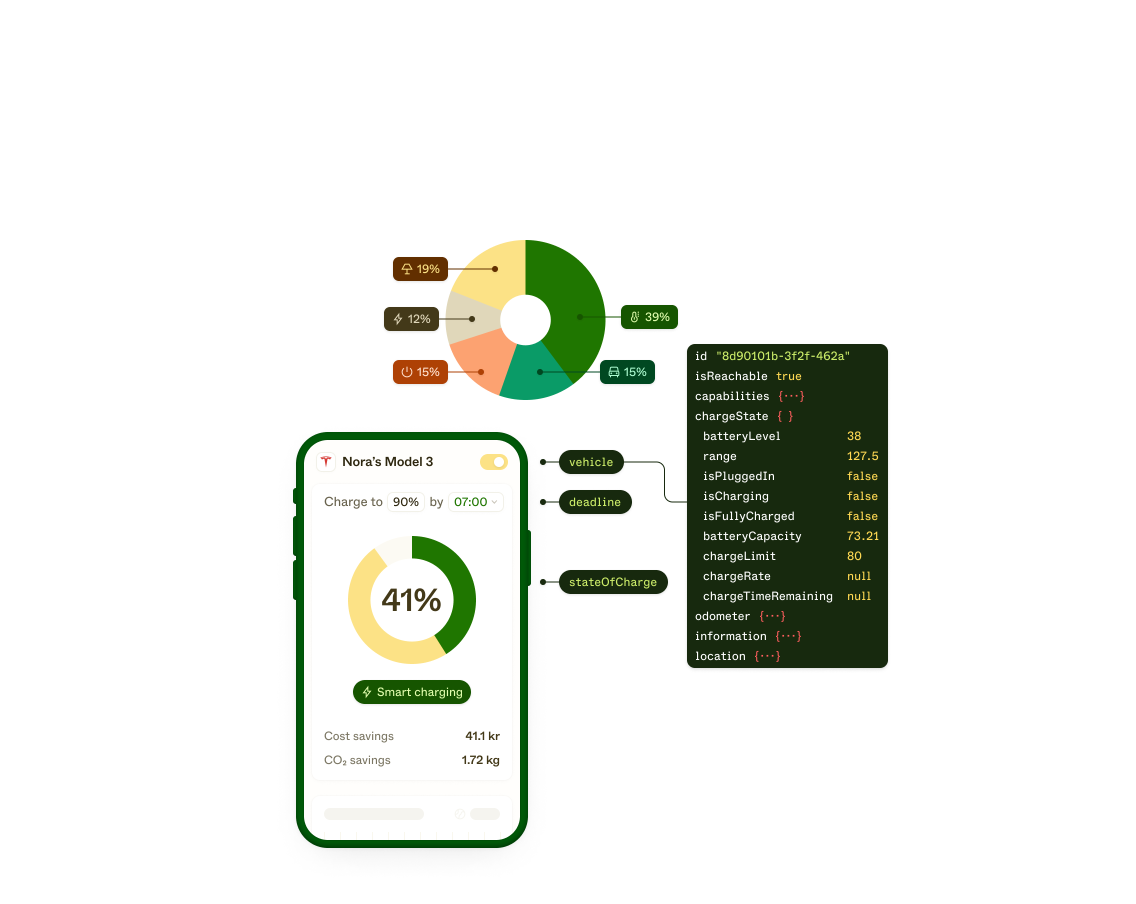How the EU Data Act will unlock innovation and accelerate the energy transition

The adoption of the EU Data Act on 11th January 2024 is a major milestone in the Open Energy movement, paving the way towards our vision for a fully electrified and renewable energy system.
Built on the foundations laid by the General Data Protection Regulation (GDPR), the new regulation promotes fair access to and use of data, accelerating digital transformation across industries. This opens the floodgates to the enormous value of data sharing, empowering consumers and ensuring “the benefits of the digital revolution are shared by everyone”.
This is just the latest in a series of regulatory moves in Europe that show the tide is turning in favor of greater data access and consumer control. And that’s good news for the energy industry. Since the energy transition depends on open communication across every part of the energy system, establishing open data standards and communications protocols will play a big role in accelerating this shift.
Giving consumers more control
At Enode, we’ve long been advocates for Open Energy. We have two fundamental beliefs when it comes to the rights of consumers regarding their data:
- Consumers should be able to control their own energy devices. They should be free to decide how they want to use that data, and who to share it with.
- Consumers should get the full benefit of their device. They should be free to share their data with the services that offer them the best experience, and the most value – so they are not limited to what is offered by the device’s manufacturer
These aren’t controversial beliefs. Thanks to the EU data act, it’s now a legal imperative.
And it’s also common sense: with better access to consumer data, more mission-critical energy management use cases are made possible. Solutions like EV smart charging and virtual power plants (VPPs), which enable more responsible and sustainable energy consumption, depend upon connectivity and data sharing.
These solutions help consumers save money on their energy bills, and reduce the lifetime cost of owning energy devices. That makes it more attractive for more people to adopt these technologies and, in turn, increases the rate of electrification and the pace of the energy transition.
Solving energy’s interoperability challenge
Unfortunately, the energy ecosystem hasn’t exactly been built with these principles in mind. In fact, the lack of interoperability has often gotten in the way of the creation and adoption of smart energy management solutions.
Access to data has historically been limited to original equipment manufacturers (OEMs), so energy devices haven’t been designed to work with other software and hardware. OEM APIs aren’t standardized, and vary in terms of the reliability, accessibility and capabilities they offer. These limitations make it much harder for third parties to build and scale the energy management solutions that could provide so much value for both consumers and the environment. But now that data ownership is being put in the consumers' hands, reliable APIs that help connect to devices and share their data are becoming crucial.
The EU Data Act states that end-users of connected devices have the right to access the data of their connected devices, and share it with third parties of their choice. This goes for all data produced by connected devices, and is not limited to personal data.
The act requires OEMs to share data at a reasonable price, with the intention of “fostering fair negotiations and enabling SMEs to participate more confidently in the digital marketplace”. It stipulates that access to data should be free for end-users, and that the cost for small and medium-sized third parties should not exceed the costs directly related to making the data available.
Regulatory shift supporting open energy
From 2025, all connected products and services across Europe will have to comply with the EU Data Act. And this is only the beginning: more regulation that supports the right of consumers to share data with third parties is already in motion.
One suggested extension of the EU Data Act focuses specifically on access to vehicle data, functions and resources. It proposes that consumers should have the right to share not only their vehicle data with third parties, but also its functions and resources, like the ability to charge and discharge the battery.
This initiative aligns well with the revised Renewable Energy Directive, which highlights the importance of demand response in achieving a renewable energy system. It states that battery and electric vehicle manufacturers should make battery information available in real time and for free, both for consumers and third parties acting on their behalf. The Renewable Energy Directive is active as of November 2023, and will be enforced from May 2025.
Open Energy will unlock innovation
These new regulatory frameworks put us on the cusp of transformative change in the energy industry. With the move towards opening up data access and putting consumers in control, we can expect to see significant acceleration towards an open energy system.
That’s what happened in the financial industry in 2018, when the Payments Service Directive 2 (PSD2) came into force. It revolutionized traditional banking infrastructure and changed the whole financial ecosystem – ultimately giving consumers new tools and better opportunities to manage their finances.
In financial services, as in the energy sector, digital innovation was already well under way. But the crystallization of regulation to support those trends is what ushered in the era of Open Banking, unlocking new possibilities and centering consumer choice.
It’s exciting to think that we’re at a similar stage in the evolution of energy. Regulations like the EU Data Act will foster a wave of innovation across the energy ecosystem, creating value for consumers and paving the way towards a fully electrified and renewable energy system.
